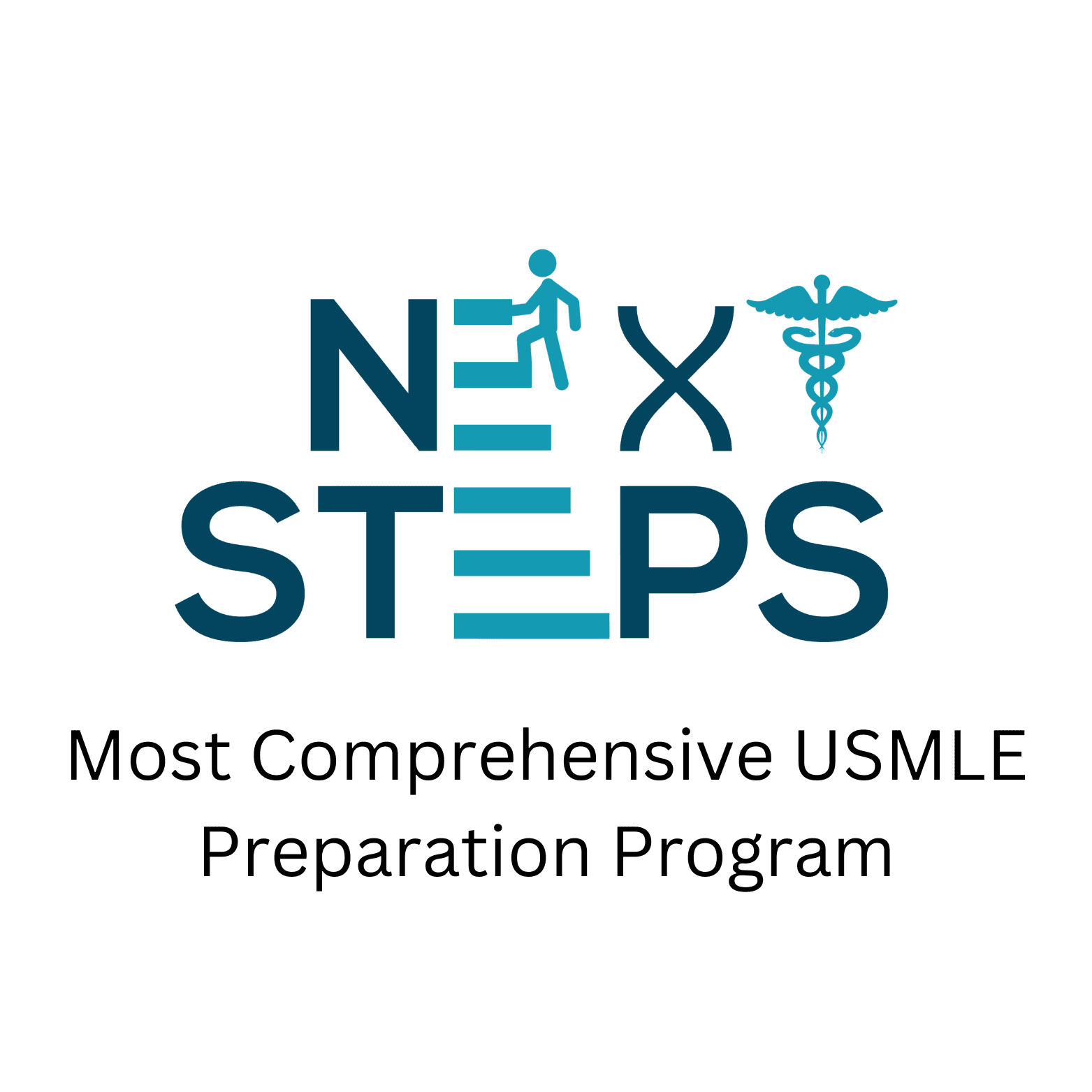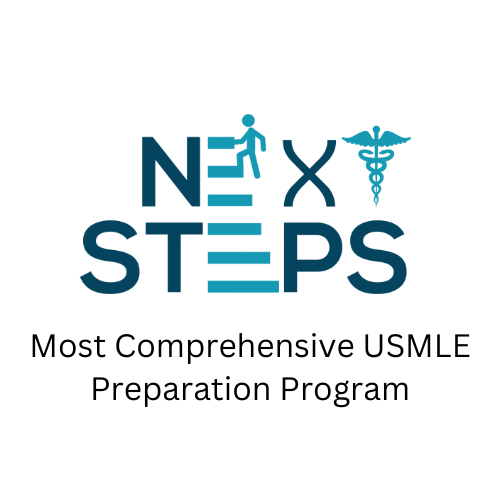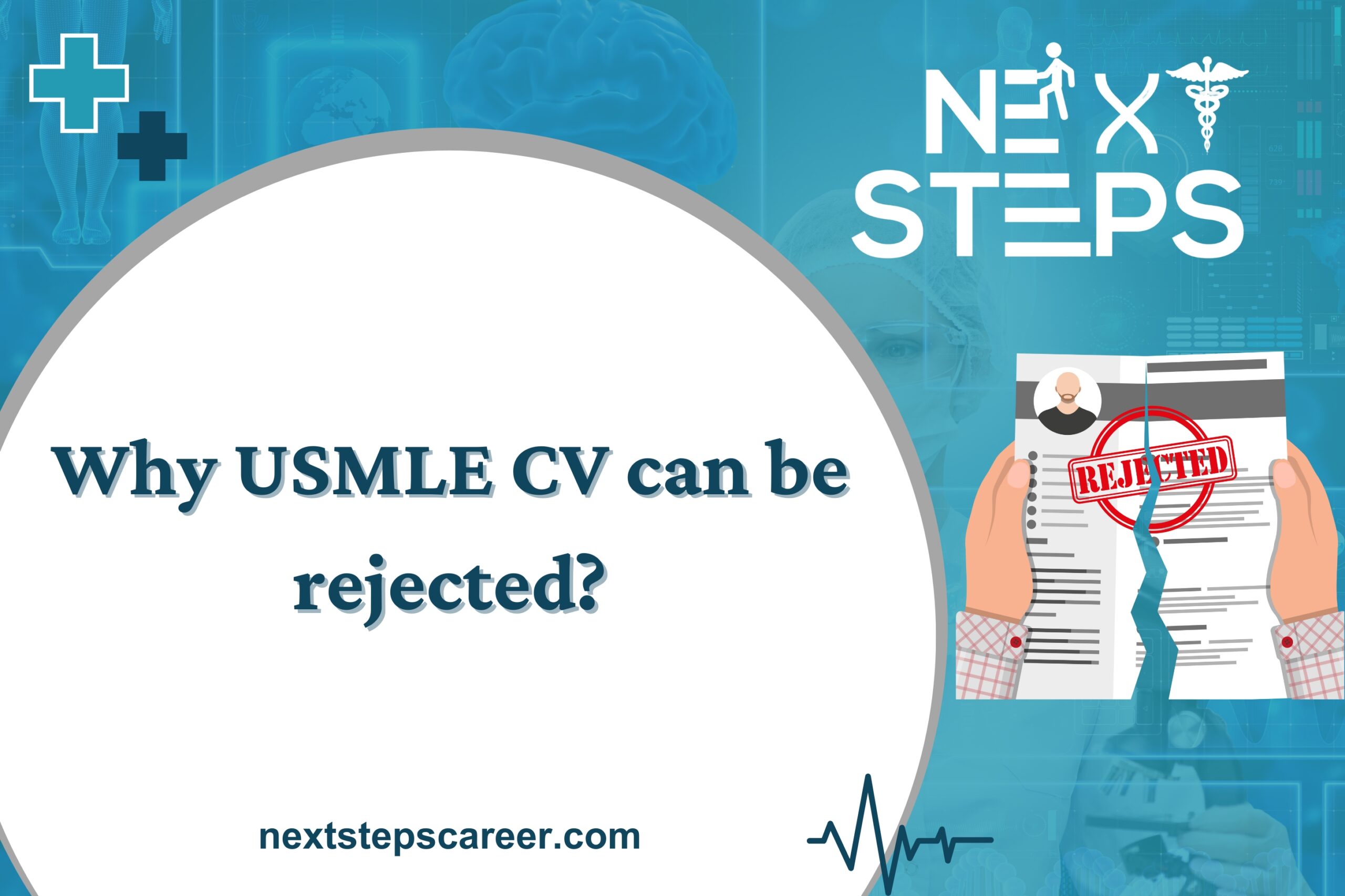Why Your USMLE CV Can Be Rejected: Common Mistakes and How to Avoid Them
Your Curriculum Vitae (CV) is a critical component of your application process for the United States Medical Licensing Examination (USMLE) and residency programs. A well-structured and compelling CV can significantly enhance your chances of being accepted into your desired residency. However, a poorly crafted CV can lead to rejection. Understanding the common reasons for CV rejection is essential for presenting yourself as a strong candidate. In this blog post, we’ll explore the top reasons why USMLE CV get rejected and provide tips on how to avoid these pitfalls.
1. Lack of Clarity and Structure
One of the primary reasons for CV rejection is a lack of clarity and structure. A CV that is poorly organized can make it difficult for reviewers to find key information quickly.
How to Avoid It:
-
- Use Clear Headings: Organize your CV with clear headings for each section, such as “Education,” “Clinical Experience,” “Research,” and “Publications.”
-
- Consistent Formatting: Use consistent font sizes, bullet points, and spacing. This creates a professional appearance and makes your CV easy to read.
-
- Reverse Chronological Order: List your experiences in reverse chronological order to highlight your most recent accomplishments.
2. Inadequate Clinical Experience
A CV lacking significant clinical experience can raise red flags for residency programs. This is especially important for IMGs (International Medical Graduates) applying for residency in the U.S.
How to Avoid It:
-
- Highlight Clinical Rotations: Ensure you list all clinical rotations and relevant experiences, including elective rotations and observerships, particularly in U.S. hospitals.
-
- Emphasize Direct Patient Care: Include experiences that demonstrate your ability to work directly with patients. This can be through clerkships, externships, or volunteer work in a healthcare setting.
3. Spelling and Grammar Errors
Typos, spelling mistakes, and grammatical errors can leave a negative impression and suggest a lack of attention to detail.
How to Avoid It:
-
- Proofread Carefully: Always proofread your CV multiple times. It can be helpful to have someone else review it as well for an objective perspective.
-
- Use Grammar Checking Tools: Utilize tools like Grammarly to catch mistakes you might overlook.
4. Unnecessary Personal Information
Including excessive personal information—such as age, marital status, or a photograph—can be inappropriate and may lead to rejection.
How to Avoid It:
-
- Stick to Relevant Information: Focus on academic and professional achievements. Avoid including personal details that are not pertinent to your medical career.
-
- Follow Guidelines: Familiarize yourself with CV guidelines specific to residency applications and adhere to them closely.
5. Lack of Research Experience
For many competitive residency programs, research experience is highly valued. A CV that does not showcase any research may be viewed as less competitive.
How to Avoid It:
-
- Highlight Research Involvement: Include any research projects, even if you played a minor role. Mention your contributions, any presentations given, and publications.
-
- Consider Volunteer Research: If you lack formal research experience, consider seeking volunteer opportunities in research labs or projects to strengthen your CV.
6. Failing to Tailor Your CV
Submitting a generic CV without tailoring it to the specific residency program can signal a lack of genuine interest.
How to Avoid It:
-
- Customize for Each Application: Research the programs you are applying to and highlight experiences that align with their values and specialties.
-
- Incorporate Keywords: Use terminology from the residency program’s mission statement or requirements in your CV to demonstrate fit.
7. Incomplete or Missing Information
Omitting critical sections or not providing enough detail in existing sections can lead to confusion and a lack of clarity about your qualifications.
How to Avoid It:
-
- Complete All Sections: Ensure that every relevant section of your CV is filled out, including education, clinical experience, research, awards, and volunteer work.
-
- Provide Specifics: Include details such as dates, titles, and locations for all experiences. Use numbers and data where applicable to quantify your achievements (e.g., “Managed a patient panel of 30 patients per week”).
8. Excessive Length
A CV that is too long can be overwhelming and may deter reviewers from reading it thoroughly. Generally, a CV should be one to two pages long, depending on your experience.
How to Avoid It:
-
- Be Concise: Focus on relevant information and avoid unnecessary details. Aim for brevity while still providing enough context for your experiences.
-
- Prioritize High-Yield Information: Highlight your most important and impressive achievements, keeping less significant details to a minimum.
Final Thoughts
Your CV is often the first impression residency programs have of you, making it essential to present a polished and professional document. By understanding the common pitfalls that lead to rejection and following the tips outlined above, you can craft a compelling CV that effectively showcases your qualifications and enhances your chances of success in the USMLE and residency match process.
Remember, the goal of your CV is to reflect your unique journey in medicine and demonstrate your readiness for the next step in your career. Take the time to create a thoughtful and engaging CV that truly represents you as a candidate.




